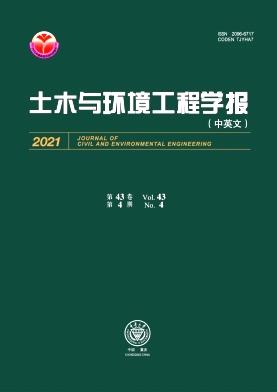Assessment of Air Quality Index for Cities and Major Towns in Tamil Nadu, India
Q2 Engineering
Tumu yu Huanjing Gongcheng Xuebao/Journal of Civil and Environmental Engineering
Pub Date : 2018-01-01
DOI:10.4172/2165-784X.1000304
引用次数: 7
Abstract
Air Pollution may be defined as any atmospheric condition in which certain substances are present in such concentrations that they can produce undesirable effects on man and his environment. The Air Quality Index (AQI) is a reporting system and an important tool of risk communication. It informs the public about the level of ambient air quality, and the potential health risk it would impose. AQI converts complex air quality data of various pollutants into a single number (index value), nomenclature and colour. AQI is represented as numeric value varies from 0 to 500. If score is 0, it is the best air quality and if score is 500, it is the worst air quality. There are six AQI categories, namely Good, Satisfactory, Moderate, Poor, Very Poor, and Severe. Each of these categories is decided based on ambient concentration values of air pollutants and their likely health impacts. In Tamil Nadu, under National Ambient Air Quality Monitoring Programme, Ambient Air Quality (AAQ) is being monitored by Central Pollution Control Board in association with Tamil Nadu Pollution Control Board in 28 locations covering cities, major towns and major industrial areas viz. Chennai, Salem, Coimbatore, Madurai, Trichy, Cuddalore, Mettur, and Thoothukudi. The AAQ data from January 2015 to December 2015 for the above cities and towns is collected and AQI is calculated for four months covering four seasons (i.e.,) January (winter), May (summer), July (monsoon), November (post monsoon). Almost all the stations’ AQI fall under good and satisfactory category except Trichy where the majority of the days the AQI fall under moderate category. From the AQI of all the stations, it is observed that responsible pollutant is PM10. The other parameter (i.e.,) SO2 and NO2 fall under good category for all stations for all days. The higher value of PM10 is mainly due to vehicular pollution.印度泰米尔纳德邦城市和主要城镇空气质量指数评估
空气污染可以定义为某些物质的浓度足以对人类及其环境产生不良影响的任何大气条件。空气质素指数(AQI)是一个报告系统,也是风险沟通的重要工具。它向公众通报环境空气质量水平及其可能造成的健康风险。空气质素指数将各种污染物的复杂空气质素数据转换成单一数字(指数值)、名称和颜色。AQI用数值表示,取值范围从0到500。0分为空气质量最好,500分为空气质量最差。空气质量指数分为六个等级,分别是良好、满意、中等、差、极差和严重。这些类别中的每一个都是根据空气污染物的环境浓度值及其可能的健康影响来确定的。在泰米尔纳德邦,根据国家环境空气质量监测计划,中央污染控制委员会正在与泰米尔纳德邦污染控制委员会联合监测环境空气质量(AAQ),覆盖城市、主要城镇和主要工业区的28个地点,即金奈、塞勒姆、哥印拜陀、马杜赖、特里希、库德洛尔、梅特尔和图图库迪。收集上述城镇2015年1 - 12月的空气质量指数,计算4个月的空气质量指数,即1月(冬季)、5月(夏季)、7月(季风)、11月(季风后)。几乎所有监测站的空气质量都在“良好”和“满意”的范畴内,只有翠西监测站大部分日子的空气质量处于“中等”范畴。从各监测站的空气质量指数来看,主要污染物为PM10。另一个参数(即)SO2和NO2在所有站点的所有日期都属于良好类别。PM10较高的主要原因是机动车污染。
本文章由计算机程序翻译,如有差异,请以英文原文为准。
求助全文
约1分钟内获得全文
求助全文
来源期刊

Tumu yu Huanjing Gongcheng Xuebao/Journal of Civil and Environmental Engineering
Engineering-Architecture
CiteScore
1.30
自引率
0.00%
发文量
5346
 求助内容:
求助内容: 应助结果提醒方式:
应助结果提醒方式:


